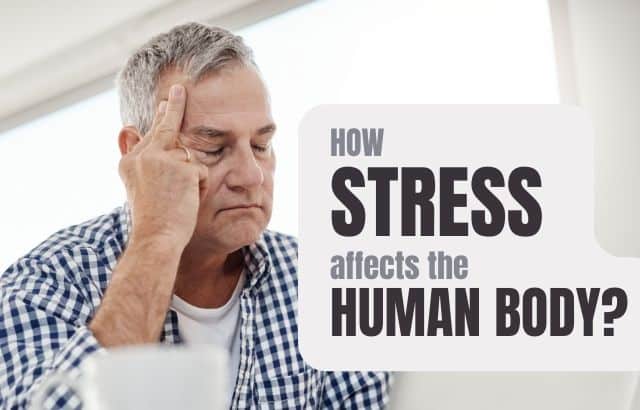Table of Contents
Physical and mental reaction to life experiences leads to stress
When you are stuck in traffic, late for an important meeting, watching the minutes tick away, hypothalamus, a tiny control tower in your brain releases stress hormones. These stress hormones trigger your body’s response due to which the heart races, breath quickens, and muscles prepare for action. This response was designed to protect your body in an emergency by preparing you to react quickly, but when the stress continuous on a daily basis it could put your health at serious risk, says Business Astrologer™ and Astro strategist Hirav Shah
As per the medical studies, physical and mental reaction to life experiences leads to stress. Starting from everyday responsibilities like work and family to serious life events such as a new diagnosis or the death of your soulmate may trigger stress within us. Though going to stress for short-term copees up your potential during serious situations, these stress levels stay elevated far longer and can take a toll on your health. Chronic stress can cause a variety of symptoms and damage your body. A few of the symptoms of chronic stress include anxiety, depression, headaches and insomnia.
Stress affects the Central nervous system
Your central nervous system (CNS) is the main USB of your all responses. In your brain, the hypothalamus gets the ball rolling, telling your adrenal glands to release the stress hormones adrenaline and cortisol. These hormones increase your heartbeat and send blood rushing to the areas that need it most in an emergency to important organs like muscles and heart. Soon after the perceived fear is gone, the hypothalamus communicates with all systems to go back to normal. If the panicking response and stress continue, the CNS fails to return to normal. Chronic stress is also a factor in behaviours such as overeating or not eating enough, alcohol or drug
abuse, and staying away from social interactions.
How stress affects the cardiovascular system?
During the stressful response, you breathe faster in an effort to quickly distribute oxygen-rich blood to your body. If you already have a breathing problem like asthma or emphysema, stress can make it even harder to breathe and affects your cardiovascular and respiratory systems. Under stress, your heart also pumps faster and stress hormones cause your blood vessels to constrict and divert more oxygen to your muscles so you’ll have more strength to take action which also raises your blood pressure. Due to chronic stress your heart work too hard for too long which increases your risks for having a stroke or heart attack.
How stress impacts the Digestive system?
Under stress, the human liver produces extra blood sugar glucose to boost your energy. If you’re under chronic stress, your body may not be able to keep up with this extra glucose surge. Chronic stress may increase your risk of developing type 2 diabetes in people. The rush of hormones, rapid breathing, and increased heart rate can also upset your digestive system. Effect on Muscular system Your muscles tense up to protect themselves from injury when you’re stressed. But if you’re constantly under stress, your muscles may not get the chance to relax. Tight muscles cause headaches, back and shoulder pain, and body aches. Eventually, this can set off an unhealthy cycle as you stop exercising and get habituated to pain medication for relief.
Effect on sexuality and reproductive system
Stress is exhausting for both the body and mind. It’s not unusual to lose your desire when you’re under constant stress. While short-term stress may cause men to produce more of the male hormone testosterone, this effect doesn’t last. If stress continues for a long time, a man’s testosterone levels can begin to drop. This can interfere with sperm production and cause erectile dysfunction or impotence. Chronic stress may also increase the risk of infection for male reproductive organs, says a recent study. For ladies, stress can affect the menstrual cycle and can lead to irregular, heavier, or more painful periods.
Effect on Immune system
Stress stimulates the immune system, which helps you avoid infections and heal wounds. But as per the medical studies, stress hormones will weaken your immune system and reduce your body’s response to foreign invaders. People under chronic stress are more susceptible to viral illnesses like the flu and the common cold. Stress can also increase the time it takes you to recover from an illness or injury.
Conclusion

In day to day life, humans go under stress related to various issues. You are advised to save your relationships from stress and stay healthy forever. While a few end up as short-term, some others will prolong for a long time and have a significant effect on your body and health. The above-mentioned organs will be largely affected due to Chronic stress which is dangerous and leads to some long lasting diseases like BP and Sugar, says business astrologer and Astro strategist Hirav Shah
















